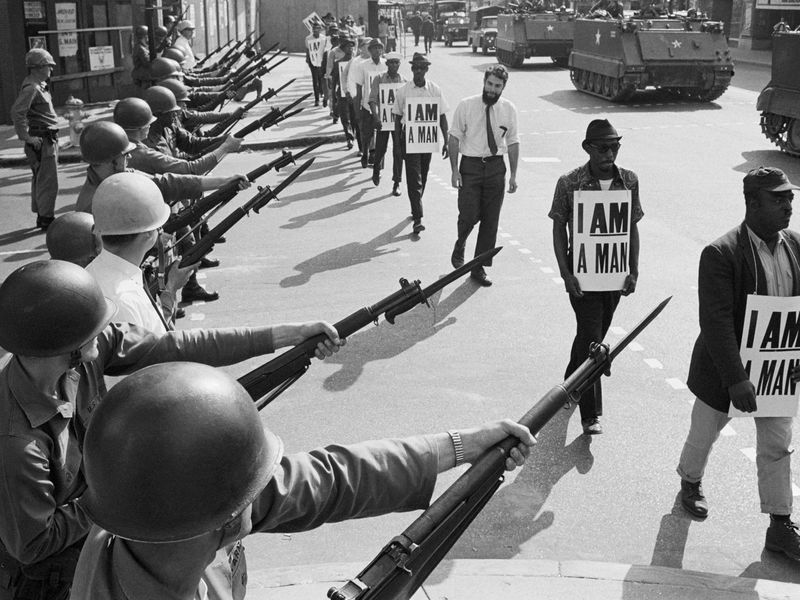Freedom And Equality: More on Equality
Posts in this Series. For those interested, I update this post from time to time with additional resources that help flesh out what may be unfamiliar ideas.
The text for this and the previous post is Elizabeth Anderson’s chapter Equality in The Oxford Handbook of Political Philosophy, available online through your public library. In the previous post we saw that Anderson describes equality in terms of social relations rather than in terms of material distribution. Relational equality is opposed to social hierarchies. She describes three forms of social hierarchy, command, standing, and esteem, and tests them against the pragmatic values of the good, the righteous or just, and the virtuous or moral. She concludes that these hierarchies are neither good, just, nor virtuous. Next she takes up the arguments of defendes of hierarchy.
Proponents of social hierarchy cannot justify the extremes of social hierarchy, slavery, serfdom, peonage. So they try to defend the less egregious cases. In evaluating these arguments, it’s helpful to think of concrete situations, rather than mere abstractions, because the actual practice of thee social hierarchies has direct impact on real humans. These hierarchies exist in government and other institutions, public and private. Anderson hersolf applies these ideas to the world of work in her book Private Government: How Employers Rule Our Lives (and Why We Don’t Talk about It), 2019, Princeton University Press.
Defenders of social hierarchies argue that command hierarchies are the only solution to certain kinds of social problems. Specifically, they argue that social order can only be maintained “… under a division of labor in which those competent to rule issue commands and others obey.” Egalitarians point out that almost everyone has the ability to participate in a democratic form of government. There is no obvious way to select those capable of command, certainly not on typical grounds, which she describes as “inscriptive group identities such as such as race, ethnicity, caste, class, gender, religion, language, citizenship status, marital status, age, and sexuality. In the real world, these defenses are nothing more than legitimating existing hierarchies of dominance.
Defenders of hierarchies of esteem and standing argue first, that there are differences in virtue among people; some people are more deserving than others, justifying differences in esteem and standing. Second these defenders argue that differences in esteem and standing act as incentives for more productive workers. Following Rousseau, Anderson writes almost poetically:
// Equal citizenship status in a republic provides such a ground. When fellow citizens meet in the public square, they meet as co-sovereigns—as co-creators and guarantors of the republic that makes them free and independent. Each can stand erect before everyone else; no one has to bow and scrape before another. Everyone basks in the glory of the republic they jointly sustain. This basal equality of esteem, of the free citizen and the recognition of that status with all its rights and dignity by fellow citizens, constitutes the essential background condition for the practice of republican virtue*. Thus, genuine virtue requires an underlying equality of esteem.**//
Anderson sees no reason for hierarchies of standing. Rewarding achievement with special material benefits, special privileges or exemptions from constraints binding others leads directly to people seeking those benefits directly instead of by cultivating virtue.
The danger of all three hierarchies is that the holders of high positions will use them for personal benefit, and will seek to pass them on to their offspring or their favorites regardless of talent or virtue, directly, as we see politicians handing their positions to their children, or indirectly, as by establishing standards for the hierarchies that favor their children or protégés. I hardly need to provide examples. Worse, once people become used to their position in these hierarchies, some of them will exploit those below them without compunction, and with no accountability.
Comments
1. Anderson says that these egalitarian arguments are better for showing the failures of the current system that for creating a new one. She points out that democracies have the potential to overcome these hierarchies, but only in practice can we find the proper means to do so.
In general, pragmatists argue that the proof of value is in the doing. Each solution engenders its own problems, problems that are rarely foreseeable, so the role of the people as an electorate is to seek solutions to the new problems or to take other routes to the desired goal. There are no permanent solutions to these problems, only approximations, best guesses, and constant evaluation.
Anderson considers herself a pragmatist in this sense. She argues in favor of democracy, which enables people to select their leaders and creates means to hold those leaders accountable. In that setting, the exercise of power is not domination: the people can throw out and otherwise punish bad leaders. For example, the US Constitution provides for impeachment of the President, Vice-President, and all civil officers, which includes all judges.
Social hierarchies resist change other than those benefit the entrenched dominant class. They are static. At its best democracy is dynamic. It is never complete. It is a project, a human project. People decide on what is important, and find ways to move toward those goals. There is a kind of organized conflict inherent in democracy, as people urge different goals and different paths to those goals. That conflict is evidence of life, and is only a threat to those who benefit unfairly and unreasonably from the existing arrangement.
2, Anderson argues for relational equality over equality of material distribution. But she is obvious that relational equality requires some material redistribution. That redistribution is subject to social determination, but should include at least sufficient food, clothing and shelter to maintain personal dignity, open access to all educational and job opportunities, additional assistance to those who have not had that access in the past, and special attention to those who are disadvantaged by illness, genetics and other causes beyond their control.
4. This piece by Anderson is beautifully written and quite clear. I have not attempted to cover all the richness of her argument.
++++++
*This term relates to the Roman Republic, not to the US party of that name. I discuss this point in an earlier post in this series.
** Richard Rorty makes similar poetic arguments in Achieving Our Country following Walt Whitman, the poet of democracy. See the additional materials in the Introduction and Index To Posts.



